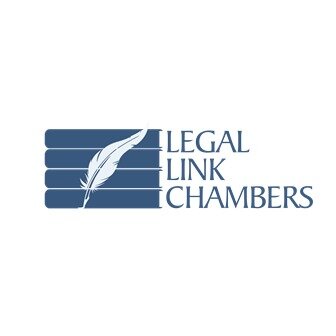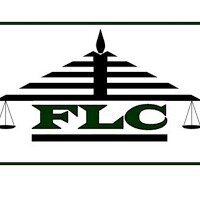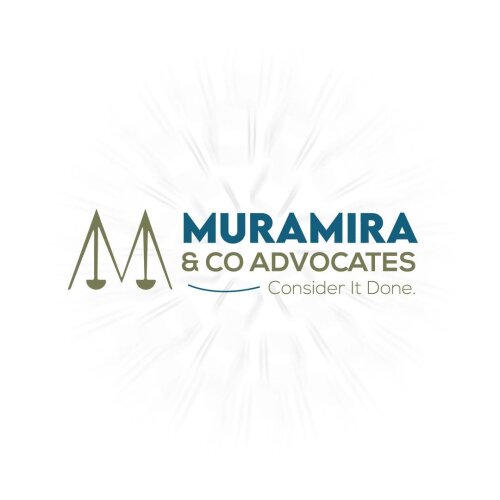Best ADR Mediation & Arbitration Lawyers in Kigali
Share your needs with us, get contacted by law firms.
Free. Takes 2 min.
List of the best lawyers in Kigali, Rwanda
About ADR Mediation & Arbitration Law in Kigali, Rwanda
Alternative Dispute Resolution (ADR) in Kigali, Rwanda, refers to the processes of mediation and arbitration used to settle disputes outside the courtroom. ADR offers a more amicable, timely, and cost-effective solution compared to traditional litigation. In Kigali, ADR is increasingly favored due to Rwanda’s robust legal framework, which encourages dispute resolution methods that foster community harmony and economic efficiency. Mediation involves a neutral third party assisting disputants to reach a mutually acceptable agreement, while arbitration involves an arbitrator making a binding decision on the dispute. The Rwandan government has been actively promoting ADR as part of its judicial reform efforts.
Why You May Need a Lawyer
Individuals usually seek legal assistance in ADR mediation and arbitration to ensure that their rights and interests are fully represented and protected. Common situations where legal help is beneficial include:
- Commercial disputes: Businesses may encounter partnership disagreements, contract breaches, or real estate conflicts.
- Employment disputes: Issues such as wrongful termination or discrimination cases often require ADR process involvement.
- Family disputes: Mediation is frequently used in resolving divorce or custody issues to mitigate conflict.
- Consumer disputes: Arbitration can help resolve conflicts between consumers and service providers efficiently.
Local Laws Overview
Rwanda’s legal framework for ADR is supportive and well-structured, primarily governed by the Rwandan Code of Civil Procedure and further regulations. Key aspects include:
- The legal recognition of mediation and arbitration as valid and effective dispute resolution processes.
- Provisions for the enforceability of arbitration awards, even if such awards are made outside Rwanda.
- Guidelines for the selection and appointment of mediators and arbitrators, ensuring their neutrality and expertise.
- Legislation that limits court intervention in disputes undergoing ADR, thereby promoting the finality of ADR outcomes.
Frequently Asked Questions
What is the difference between mediation and arbitration?
Mediation involves a mediator facilitating a discussion between disputants to help them reach an agreement. Arbitration involves an arbitrator who reviews the evidence and makes a binding decision on the dispute.
Is an arbitrator's decision final?
Yes, an arbitration decision is typically binding and enforceable in court, much like a court verdict.
Can any dispute be resolved through ADR?
While ADR is suitable for many types of disputes, some criminal cases or matters requiring judicial precedent may still need to be resolved in court.
How long does the ADR process take in Kigali?
The duration of ADR can vary based on the dispute's complexity but is generally faster than traditional litigation.
Do I need a lawyer for ADR processes?
While not mandatory, having a lawyer can provide valuable guidance and ensure that your interests are adequately represented.
What are the costs associated with ADR?
ADR is typically less expensive than court proceedings as it involves fewer procedural requirements and a faster resolution time.
Can ADR proceedings be kept confidential?
Yes, both mediation and arbitration processes are generally confidential, protecting privacy and sensitive information.
How are mediators and arbitrators chosen?
They can be chosen by the parties involved or appointed by an ADR institution based on their expertise and neutrality.
What if one party does not agree to ADR?
ADR requires the consent of both parties, so coercion is not possible. If one party refuses, traditional litigation may be necessary.
Where can I find ADR services in Kigali?
ADR services can be accessed through law firms, ADR institutions, and the judiciary of Rwanda, which supports ADR methods.
Additional Resources
For further assistance with ADR in Kigali, consider reaching out to:
- The International Centre for Arbitration and Mediation in Kigali (ICAM-Kigali)
- The Rwanda Bar Association for qualified legal practitioners
- The Ministry of Justice for information on ADR policies and regulations
Next Steps
If you need legal assistance in ADR mediation and arbitration, it is advisable to:
- Consult with a qualified lawyer who specializes in ADR to understand your options.
- Research and reach out to ADR institutions or practitioners who can facilitate your case.
- Prepare all relevant documents and evidence related to your dispute before proceeding with ADR.
- Decide collaboratively on a mediator or arbitrator, or allow an institution to appoint one for your case.
Lawzana helps you find the best lawyers and law firms in Kigali through a curated and pre-screened list of qualified legal professionals. Our platform offers rankings and detailed profiles of attorneys and law firms, allowing you to compare based on practice areas, including ADR Mediation & Arbitration , experience, and client feedback.
Each profile includes a description of the firm's areas of practice, client reviews, team members and partners, year of establishment, spoken languages, office locations, contact information, social media presence, and any published articles or resources. Most firms on our platform speak English and are experienced in both local and international legal matters.
Get a quote from top-rated law firms in Kigali, Rwanda — quickly, securely, and without unnecessary hassle.
Disclaimer:
The information provided on this page is for general informational purposes only and does not constitute legal advice. While we strive to ensure the accuracy and relevance of the content, legal information may change over time, and interpretations of the law can vary. You should always consult with a qualified legal professional for advice specific to your situation.
We disclaim all liability for actions taken or not taken based on the content of this page. If you believe any information is incorrect or outdated, please contact us, and we will review and update it where appropriate.















